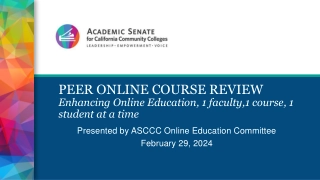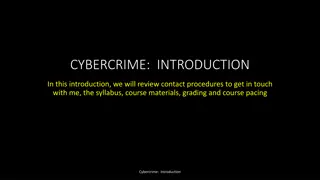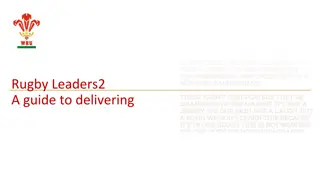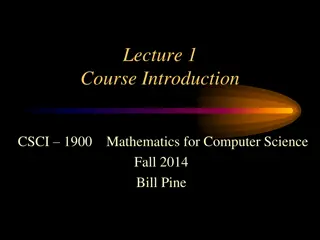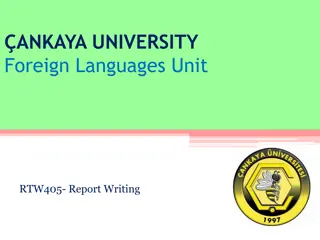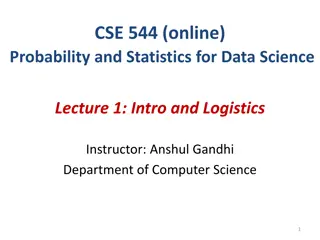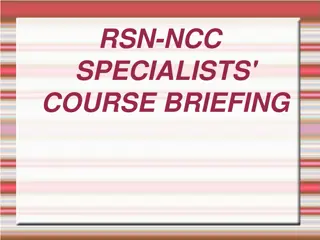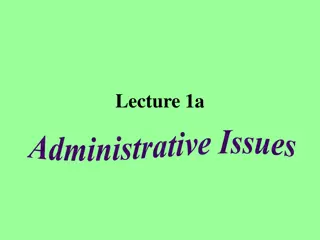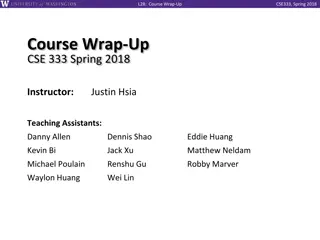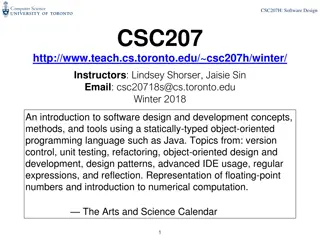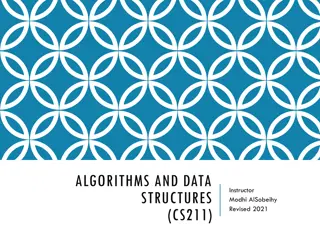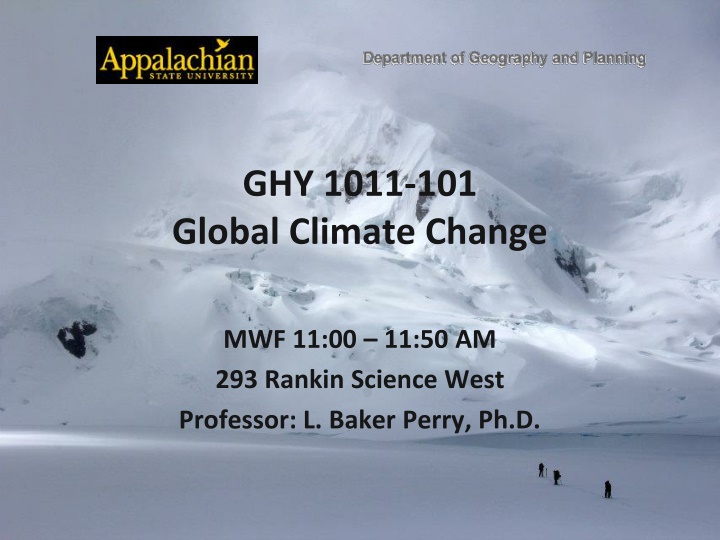
Explore Global Climate Change Course Details with Professor L. Baker Perry
Dive into the details of GHY 1011-101 Global Climate Change course taught by Professor L. Baker Perry, Ph.D. Discover course introductions, logistics, policies, and student engagement statements. Get insights on course expectations, readings, videos, and assignments. Be prepared for an engaging and challenging learning experience focused on climate change issues.
Download Presentation

Please find below an Image/Link to download the presentation.
The content on the website is provided AS IS for your information and personal use only. It may not be sold, licensed, or shared on other websites without obtaining consent from the author. If you encounter any issues during the download, it is possible that the publisher has removed the file from their server.
You are allowed to download the files provided on this website for personal or commercial use, subject to the condition that they are used lawfully. All files are the property of their respective owners.
The content on the website is provided AS IS for your information and personal use only. It may not be sold, licensed, or shared on other websites without obtaining consent from the author.
E N D
Presentation Transcript
GHY 1011-101 Global Climate Change MWF 11:00 11:50 AM 293 Rankin Science West Professor: L. Baker Perry, Ph.D.
Introduction to Course Introductions Course Logistics Evidence for Climate Change? Why is Climate Changing? Questions? For Next Class: Read Chapter 1 PDF on AsUlearn Labs WILL NOT meet this week!
Introductions Find out the following information from a partner: NAME POINT(S) OF ORIGIN MAJOR (or projected major) INTERESTING PLACES VISITED FAVORITE KIND OF WEATHER INTERESTS/HOBBIES
Videos https://www.youtube.com/watch?v=ISmN0MPR83U &feature=youtu.be https://today.appstate.edu/2019/03/15/peru-videos
Course Logistics Please read the course syllabus in detail and let me know if you have any questions! Office hours are MWF 8-9 and 10-11, F 2-4 PM, or by appointment Textbook is Our Changing Climate: Introduction to Climate Science and should be available at the bookstore later this week. Other readings will be available on AsUlearn. Readings are expected to be completed before coming to class! THIS IS NOT AN EASY CLASS! BE PREPARED TO WORK HARD AND TO BE CHALLENGED!
Course Policies Attendance: Course attendance is expected and will be taken on a routine basis. Two absences are allowed without penalty; each additional absence results in a 2.5-point deduction from your attendance grade. Participation: There will be a variety of participation activities over the course of the semester. More details will be provided at a later date. Annotated Bibliography: The annotated bibliography will consist of a summary of five refereed publications that address one of the global climate change themes or issues discussed during the semester. Exams: Make up exams will only be given due to a verifiable emergency. It is the student s responsibility to contact the faculty member within 24 hours of the scheduled exam to request a makeup. Otherwise, the student will receive an automatic zero. Final Exam: The final exam is cumulative and is scheduled for May 1. All students will take the final at this time.
Statement of Student Engagement In its mission statement, Appalachian State University aims at providing undergraduate students a rigorous liberal education that emphasizes transferable skills and preparation for professional careers as well as maintaining a faculty whose members serve as excellent teachers and scholarly mentors for their students. Such rigor means that the foremost activity of Appalachian students is an intense engagement with their courses. In practical terms, students should expect to spend two to three hours of studying for every hour of class time. Hence, a fifteen hour academic load might reasonably require between 30 and 45 hours per week of out-of-class work.
Global Climate Change Is the climate changing? On what evidence (i.e., what are the indicators of climate change?
Indicators of Climate Change IPCC 2013
Global Climate Change Do humans have anything to do with climate change? How? Should we care? Why? Is there anything we should do about it?

